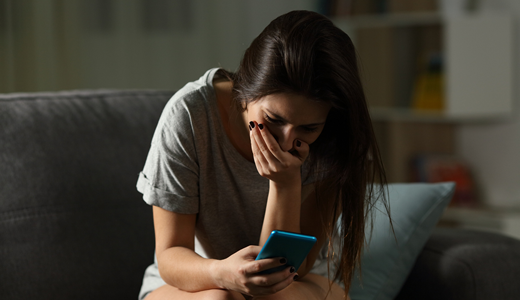The world was horrified last week when news spread of the horrific shooting that claimed the lives of 50 people at two New Zealand mosques on March 15. And though similar mass shootings around the world have become a terrible recurring story over the last couple of decades, such wanton carnage increasingly has a disturbing social media component to it as well.
The fact that the alleged shooter live-streamed the massacre on Facebook has provoked plenty of reaction. Writing for The Conversation, Stuart M. Bender was one of many voices expressing concern for the ways that “social media create a spectacle society that makes it easier for terrorists to achieve notoriety.” The Atlantic’s Taylor Lorenz adds that “every aspect of the shootings was designed to gain maximum attention online, in part by baiting the media.”
And in his New York Times article “A Mass Murder of, and for, the Internet,” Kevin Roose says of the meticulously planned assault, “But a surprising thing about it is how unmistakably online the violence was, and how aware the shooter on the videostream appears to have been about how his act would be viewed and interpreted by distinct internet subcultures.”
Politico’s Jack Shafer staked out a contrary position in his article “Don’t Censor the New Zealand Shooting Videos“: “Averting our gaze from mass murder won’t keep it from happening—and it won’t even stop the murderers from spreading their sick ideas.”
Finally, Congress has called for a meeting of top tech execs from Facebook, Twitter, Microsoft and Alphabet (Google and YouTube’s parent company) to talk about strategies to prevent the dissemination of such videos via their influential online platforms.
In another social media arena, Tumblr’s decision to ban porn from its site late last year has led to a significant drop in its traffic. The Verge reports that the number of visitors to the site has dropped from 521 million in December to 370 million in February, a skid of nearly 30%. Late last year, Tumblr CEO Jeff D’onofrio explained the company’s rational for banning explicit and pornographic content: “There are no shortage of sites on the internet that feature adult content. We will leave it to them and focus our efforts on creating the most welcoming environment possible for our community.”
And researchers continue to study the possible connection between online pornography and the rising incidence of young men struggling with impotency. Again, social media is implicated as a gateway to explicit material. Mary Sharpe of the Reward Foundation (a British organization focused on helping people understand the influence of pornography) told the U.K.’s Guardian,
Porn stars have Instagram accounts so they’re getting kids to look at them on Instagram, and within their material they’ll say: ‘Look at my latest video.’ One or two clicks and you’re looking at hardcore porn.
Kids today also are reportedly failing to develop life skills associated with adulthood, in part because parents continue to do things for them. Forget so-called helicopter or even lawn-mower parents (those who hover and those who pave the way in before their children, respectively). The new term du jour for such folks: “snowplow parents.” And that approach includes parents who are willing to bulldoze legal and ethical boundaries in an attempt to secure their children’s future—a story we’ve seen play out this week with actresses Lori Laughlin and Felicty Huffman and their alleged illegal activities to get their children enrolled in elite universities.
Meanwhile, the BBC reports new research that suggests that people’s brains aren’t fully developed—that is, they aren’t fully “adult”—until they hit their 30s.
Elsewhere, openly gay, Grammy-winning British singer Sam Smith has now come out as “nonbinary.” “I’m not male or female. I think I’ll float somewhere in between,” he said on actor Jameela Jamil’s Instagram show I Weigh Interviews. And Harry Potter creator J.K. Rowling is dealing with social media criticism from some after elaborating further on Dumbledore and Grindelwald’s “intense” gay relationship.
And though we’ve frequently reported that teens today are struggling more with depression and mental health issues than ever before, yet another new study this week—spearheaded by San Diego State University professor of psychology Jean Twenge—reinforces that that trend. Gizmodo summarizes the some of the study’s key findings:
It found that rates of depressive episodes and serious psychological distress have dramatically risen among [teens] in recent years, while hardly budging or even declining for older age groups.
“I think this is quite a wake-up call,” Mary Helen Immordino-Yang, a professor of psychology and education at the University of Southern California told Time, which also reported on the study. “These findings are coming together with other kinds of evidence that show we’re not supporting our adolescents in developmentally appropriate ways.”
But lest we land this week’s Culture Clips on such an anxious note, Christian singer Lauren Daigle talks about how her relationship with a God who “loves me beyond my wildest imagination” helps her to cope with her fears and anxieties.
View this post on InstagramKnoxville Q&A | Swipe for Full Video! | 3.14.19 | #lookupchildtour 🌿
A post shared by Lauren Daigle (@lauren_daigle) on






Recent Comments